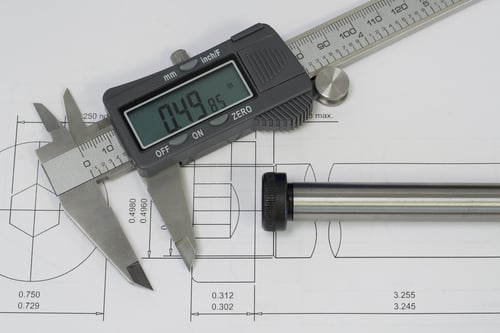DOES THIS PART NEED A PPAP?
Does this part need a PPAP (Production Part Approval Process for those who stumbled upon this article by accident)? For many quality professionals this is one of the first questions asked of customers when a part changes or a new part is in the works. The answer to this question can most often be found in the customer’s Supplier Quality Manual or some other similar document that lays out the approval requirements, typically aligned with the current AIAG (Automotive Industry Action Group) standards, which means yes, the customer wants a PPAP.
For fasteners, however, it is worth challenging the blanket statements in the customer Supplier Quality Manual for this reason; PPAP requirements are often written for parts that were designed and engineered by the customer and manufactured by a tier 1 supplier. These are make-to-print parts with characteristics designed specifically with the functionality needed to make the customer’s final product work. This makes sense. Especially if there are critical or safety critical features designed into the part. In this case a level 3 PPAP is reasonable to prove that the manufacturer can repeatedly provide conforming parts and that there are adequate and predictive controls in place during the manufacturing process to ensure conformance.
Fasteners, however, are not often designed by the customer for specific functionality. Fasteners are most often chosen by the customer’s engineer(s) based on industry standard mechanical and physical characteristics. Industry standard or Common, Off the Shelf (COTS) fasteners are often acquired through distribution channels and not by tier 1 suppliers, thus are a great opportunity to work with customers to determine the most efficient approval process options.
Now, just to be clear, sometimes customers design special features into fasteners. These make-to-print fasteners should get a PPAP. COTS (Common, Off the Shelf) fasteners, however, are manufactured to industry standards such as IFI, ASTM, ASME, ISO, DIN, or others that specify the features, performance, and testing requirements for standard fasteners. If a fastener is documented to be made to one or more of these standards, one can have a high level of confidence the fastener will perform as needed.
Why does it matter? Why should approval requirements for fasteners be negotiated between customer and supplier? One reason, eliminate WASTE. In this case, eliminate one of the seven deadly wastes as defined by 5S principles – Over Processing. This is when a downstream process produces more output than the upstream process needs. In the case of PPAPs, suppliers may be required to produce more analysis and paperwork than the customer needs to confidently approve the fastener for use. This is true particularly in the case of COTS fasteners. Reducing the approval requirements to exactly what is needed will eliminate processing resources and time by both the supplier and customer. Not to mention saving cash. Some manufacturers charge upwards of $300 or more for each PPAP package. This adds up fast if the program has multiple fasteners in the scope.
What is the alternative? A streamlined solution for approval documentation for COTS fasteners is a First Article Inspection Report (FAIR) which includes an Initial Sample Inspection Report (ISIR), material and process certificates (plating, heat treating, patching, etc.) and mechanical characteristics certifications as needed. A FAIR package provides the customer with the evidence needed to ensure the fastener at hand meets the performance requirements they are looking for. FAIR documentation is readily available and easily obtainable from fastener distributors, especially if requested upfront with the initial purchase order or sample request. A FAIR package along with the requisite number of samples may be all the customer needs to qualify and approve the COTS fastener.
Is a PPAP necessary? The answer is yes if the customer requests one. However, it is worth having a conversation to determine if a FAIR package will provide the necessary documentation and evidence needed to approve the COTS fastener, thus eliminating waste, and potentially saving real money. Ultimately the approval documentation requirements will come down to the agreement made between the customer and supplier, but it is worth discussing. What do you have to lose?
Contact Our Experts!
To learn more about COTS Parts, PPAP's, or our Quality Team, call us today at 815.637.9002 or leave us a message through our contact form.

